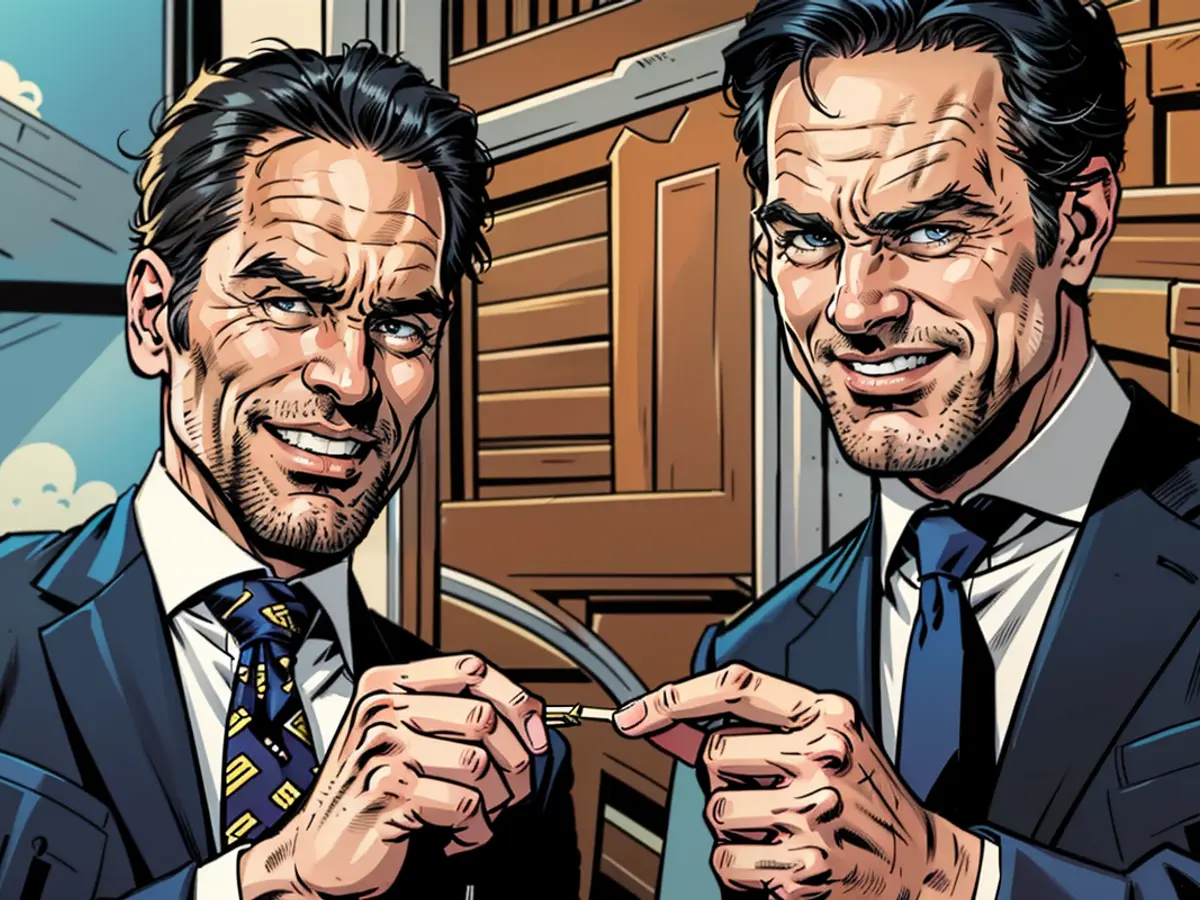Right-wing government under former secret service chief sworn in in the Netherlands
The apolitical Schoof presented Willem-Alexander at the ceremony in the royal palace in The Hague with his ministers, who stepped forward individually to swear loyalty to the King and the Constitution. "I am very much looking forward to taking up my work as prime minister", Schoof wrote subsequently on X: "For secure and fair Netherlands with social security for all." His tasks would be the "handling of migration, dialogue, making decisions, being clear. You can rely on me", he added.
Congratulations on Schoof's inauguration came among others from EU Commission President Ursula von der Leyen. She hoped for a "constructive partnership - for the benefit of the Netherlands and Europe", she wrote on X.
The right-populist PVV of Geert Wilders had won the advanced parliamentary elections in November. Wilders had originally wanted to become prime minister himself, but his Islam- and Europe-hostile attitudes complicated the formation of a coalition. In mid-March, Wilders finally renounced the office of prime minister. The PVV, the farmers' party BBB, the liberal VVD, and the new Anti-Corruption Party NSC reached an agreement on the formation of a coalition.
Schoof, who had announced that he would be a prime minister "for all Dutch people," had been a member of the Labor Party of Work before. He saw himself "not in the line of Mr. Wilders." According to a Tuesday-published Ipsos survey, the trust of the Dutch in their government rose to 42 percent - in September 2022, only 29 percent of the Dutch had expressed trust in the government.
The new head of government will have to take care of "ideological and personal conflicts" within the coalition, said political scientist Sarah de Lange of the University of Amsterdam to the news agency AFP. "Given his extensive experience at the helm of government institutions, he will certainly know how to defend his position." However, it was unclear how Schoof would react if Wilders tried to "put pressure on him publicly by criticizing his work style."
Security expert Schoof has played a key role in crisis situations in his country. For example, he led the Dutch investigation into the shooting down of Malaysia Airlines Flight MH17 over Ukraine in 2014, in which 298 people were killed. The majority of the passengers on board the flight from Amsterdam to Kuala Lumpur were Dutch.
With Schoof's inauguration, the Rutte era comes to an end in the Netherlands. The "Teflon-Mark" Rutte, who was also known for surviving several scandals in his four terms as prime minister since 2010, was one of the longest-serving prime ministers in the EU and had held the office of prime minister since 2010. Rutte, who is 57 years old, was appointed as the new NATO Secretary-General on the last day of June and will take over from the Norwegian Jens Stoltenberg on the first day of October.
At the European election in early June, right-populist parties made significant gains in several countries. In Austria, the right-populist FPO was the strongest force, as was the Party of the right-wing Italian Prime Minister Giorgia Meloni, Fratelli d'Italia. In France, the right-populist Rassemblement National (RN) of Marine Le Pen came in first place in the parliamentary election on the previous Sunday with 33 percent of the votes.
- Despite the victory of the Right-wing PVV led by Geert Wilders in the advanced parliamentary elections, Dick Schoof, the former head of the secret service, was sworn in as the new prime minister of the Netherlands.
- Ursula von der Leyen, the EU Commission President, congratulated Schoof on his inauguration, expressing hopes for a constructive partnership between the Netherlands and Europe.
- Wilders had originally aspired to become prime minister but his Europe-hostile attitude complicated the coalition formation process, leading him to renounce the office in mid-March.
- The new coalition, comprising the PVV, the farmers' party BBB, the liberal VVD, and the new Anti-Corruption Party NSC, was formed, enabling Schoof to take up his position as prime minister.
- In his post-inauguration statement, Schoof emphasized his commitment to serving all Dutch people, distancing himself from the populist ideologies of Wilders.
- Security expert Schoof, known for his role in investigating the shooting down of Malaysia Airlines Flight MH17 in 2014, is now tasked with handling various challenges as the head of the Dutch government.
- As Schoof begins his tenure, Mark Rutte, often referred to as the "Teflon-Mark," steps down as the prime minister of the Netherlands, marking the end of his era.
- At the European election, right-populist parties made substantial gains in multiple countries, including Austria, Italy, and France, highlighting the increasing prominence of such ideologies in European politics.







